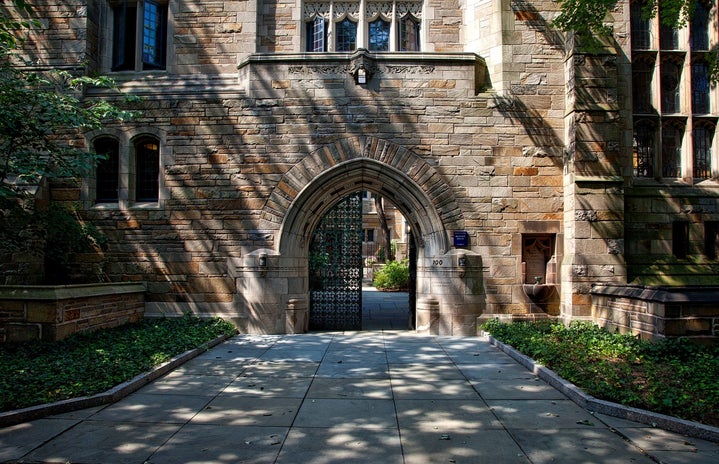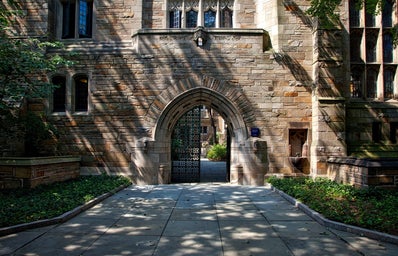There is something that feels right about reading poetry during the colder seasons. It may just be me, but hiding from the cold by bundling up near a fire seems like peak poetry-reading moments. It has also proven to be peak poetry-writing moments. When I began researching for this article, I discovered thousands of poems written from and for the fall and winter seasons. Something in the falling leaves turning into snow has captured writers’ attention for centuries. In honor of one of my favorite art forms, I have gathered a handful of poems that trace the changing of the seasons, spanning 1600 to 2004.
Year after year will continue to pass, but one thing will not change: leaves will fall off trees.
“But I am done with apple-picking now.
Essence of winter sleep is on the night,
The scent of apples: I am drowsing off” (Frost).
Robert Frost’s “After Apple-Picking” is the perfect poem to transition you from fall to winter. The narrator is an apple farmer who has had an immensely busy harvest season and is ready for the approaching winter. As his drowsiness gets the best of him, this apple farmer wonders what kind of sleep is upon him. Once he has harvested every last apple and turned the bruised ones into cider, he will finally get to rest. Yet, he is unsure whether it will be a mere “human sleep,” or the “long sleep” brought on by winter. It is left to the reader to decipher what he means by “long sleep.” Is it hibernation or death? However you decide to interpret this poem, one thing is sure: winter is here.
“But the mind always
wants more than it has—
one more bright day of sun,
one more clear night in bed
with the moon; one more hour
to get the words right; one
more chance for the heart in hiding
to emerge from its thicket
in dried grasses—as if this quiet day
with its tentative light weren’t enough,
as if joy weren’t strewn all around” (Hughes).
I stumbled across this poem recently by contemporary poet Holly Hughes, entitled “Mind Wanting More,” and I think it is a flawless fit for this time of year. It describes an average cloudy day, as time seems to slow, and the effects such a day has on one’s mind. With the arrival of a grey day comes the desire for a sunny day. “One more nice day,” we all say as winter arrives. In her two stanzas of a poem, Hughes journeys through the changing weather and our greedy minds. My favorite line is, “…one / more chance for the heart in hiding / to emerge from its thicket.” Beautiful with a tinge of sadness, I suggest you give this poem a read when the weather isn’t quite how you would like it to remind you there are little joys “strewn all around.”
“Now winter nights enlarge
The number of their hours;
And clouds their storms discharge
Upon the airy towers.
Let now the chimneys blaze
And cups o’erflow with wine,
Let well-turned words amaze
With harmony divine” (Campion).
Thomas Campion, a 17th-century English composer, wrote this poem, “Now Winter Nights Enlarge.” Whether or not he is referencing the reversal of daylight savings time, Campion’s portrayal of the darkening of winter is as relevant as ever. It has been getting dark at five o’clock these days, and our daylight will only diminish the deeper we trudge into winter. What I like most about this poem is the solution Campion provides for this. He says to start a fire, drink something that will make you feel warm, and talk to each other. I find that absolutely lovely. The final lines summarize it perfectly: “Though love and all his pleasures are but toys, / They shorten tedious nights.” Hopefully, Campion has inspired you to fill the darkness of winter with meaningful moments.
“There’s not a day in all the year
But holds some hidden pleasure,
And looking back, joys oft appear
To brim the past’s wide measure.
But blessings are like friends, I hold,
Who love and labor near us.
We ought to raise our notes of praise
While living hearts can hear us” (Wilcox).
My favorite holiday (that often gets overlooked by Christmas fanatics) is Thanksgiving, which is the name of this poem by Ella Wheeler Wilcox. I cannot tell if she is talking specifically about the holiday at the end of November, or the general idea of thanksgiving. Nonetheless, Wilcox powerfully reminds her reader to be grateful for life itself. Her simile comparing blessings to friends offers a more practical take on accounting for your blessings. You would tell your friends how much they mean to you, so why not tell the good things in your life the same thing? As Wilcox says, “while living hearts can hear us.”
“Throughout the afternoon I watched them there,
Snow-fairies falling, falling from the sky,
Whirling fantastic in the misty air,
Contending fierce for space supremacy.
And they flew down a mightier force at night,
As though in heaven there was revolt and riot,
And they, frail things had taken panic flight
Down to the calm earth seeking peace and quiet” (McKay).
I am extremely happy to have come across this poem by one of my favorite poets, Claude McKay. Though known primarily for this presence in the Harlem Renaissance, McKay’s poetry should not be limited to one kind of writing. This poem of his comes in two parts. The first describes the scene the narrator is watching through his window: falling snow (or “snow-faires” as he calls them). The second part ties the snowy scene into a love story. The narrator compares himself to winter and the woman to summer and, unfortunately, he is left alone the next morning. The last line of the poem is the narrator reflecting on who he has become after this scene: “The lonely actor of a dreamy play.” I recommend this poem for days when it’s snowing a little too hard.
“The holiest of all holidays are those
Kept by ourselves in silence and apart;
The secret anniversaries of the heart,
When the full river of feeling overflows;–” (Longfellow).
This is only the first few lines of Henry Wadsworth Longfellow’s “Holidays,” which I urge you to read in full. It is a beautiful poem about none of the popular holidays we celebrate widely today, but about the personal holidays you celebrate daily. There is something that I cannot quite put my finger on that makes this poem feel a little more special than the rest. Amidst a season bombarded by holidays that may feel commercialized and overwhelming, you mustn’t forget what it’s all about: a celebration of life that is most often commemorated by poetry.
Poetry Referenced:
“After Apple Picking” by Robert Frost
“Mind Wanting More” by Holly Hughes
“Now Winter Nights Enlarge” by Thomas Campion
“Thanksgiving” by Ella Wheeler Wilcox
“The Snow Fairy” by Claude McKay
“Holidays” by Henry Wadsworth Longfellow


